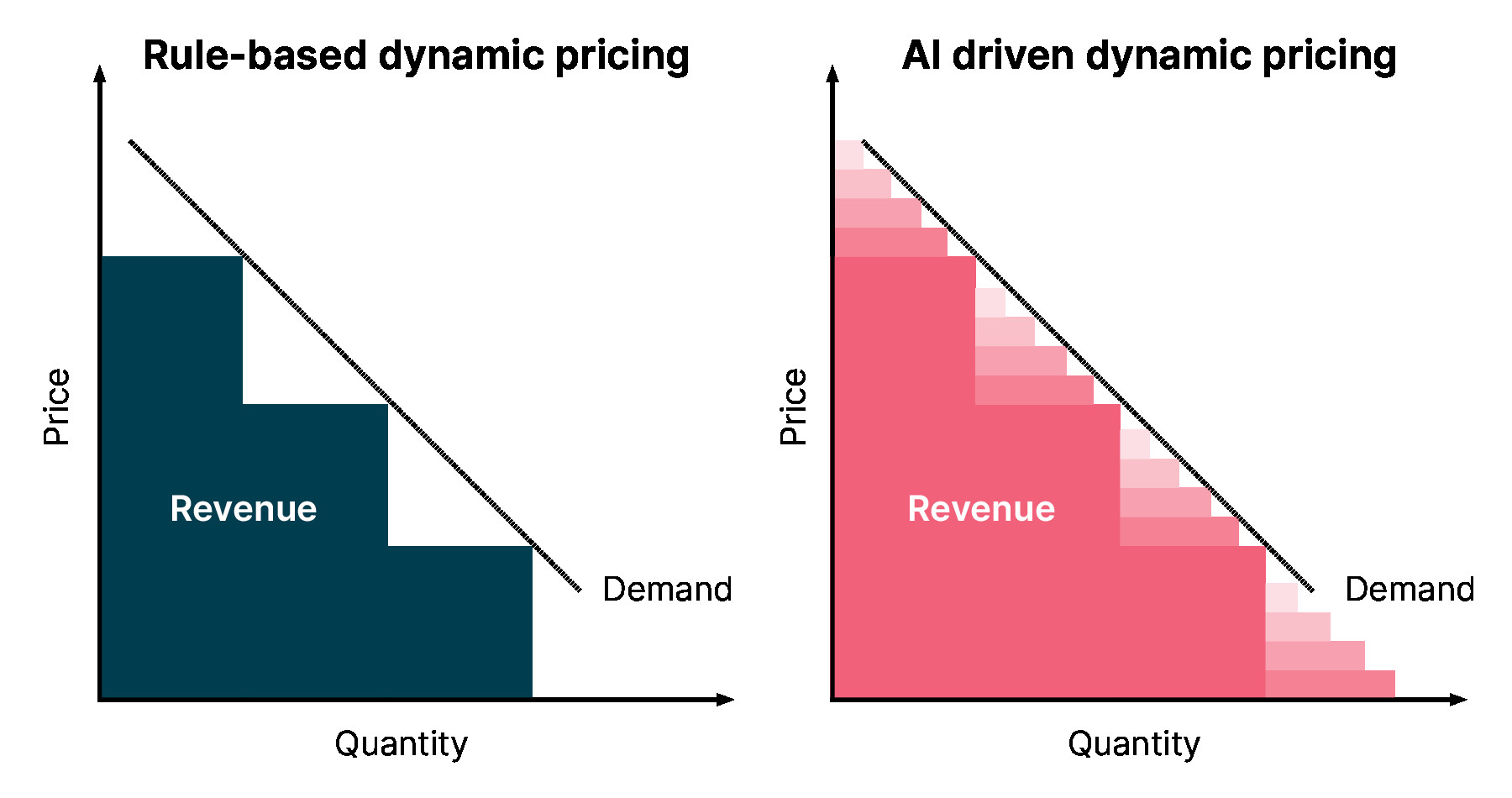It was only after the guns fell silent that we began counting the cost. Dynamic pricing had more than doubled the price of Oasis tickets and tens of thousands had chosen to pay these over-the-top prices to help the Gallagher brothers enjoy a comfortable old age. The prime minister was furious. “This isn’t just an Oasis problem. This is a problem for tickets for all sorts of events,” he fumed.
Then the education secretary, Bridget Phillipson, piled in, saying she wanted to stop airlines raising prices during school holidays. In one giant leap we’d gone from Don’t Look Back in Anger to duty-free cigarettes and alcohol.
All it took was the outrage of a few hundred thousand gig goers to bring to the attention of the government a problem that millions of travellers have faced ever since the invention of the dynamic pricing algorithm.
How Dynamic Pricing Works
Dynamic pricing involves increasing or decreasing the cost of a product according to fluctuations in demand. It’s not just Oasis tickets jumping from £135 to £350 (which the competition regulator is now investigating). It’s the flight to Malaga that’s £80 in February and £380 in July. It’s the family holiday to Greece that was £699pp in June spiralling to £1,299pp in August, tempting parents to risk fines of £80 per child in order to save an awful lot more on the package price.
The Problem With Dynamic Pricing in Travel
And plenty are: absenteeism is at record levels, according to Department for Education data, with nearly 400,000 penalty notices issued in the 2022-2023 academic year.
Tour operators have long argued that rather than being a rip-off, high-season prices are actually just the regular price, and that low-season holidays are simply heavily discounted versions of the above.
But as the heat in July and August becomes increasingly unbearable, demand is shifting to the shoulder seasons. Prices during the school holidays should therefore be falling, but they’re not. There’s no desire, it seems, to liberate that captive family market.
“For some businesses a flexible pricing strategy that reflects peaks and troughs in demand for their goods and services will make perfect economic sense,” said Paul Williams at the law firm Pinsent Masons.
That said, it’s against consumer law for a trader to mislead consumers over the price of goods or services. That’s what’s alleged to have happened with the Oasis tickets, but it’s extremely rare in travel, unless you count the drip pricing that some airlines use to inflate fares with charges for specific seats and hold baggage.
The Government's Intervention
That means the government has little real chance of stamping out dynamic pricing in travel. So how about changing our school holiday regime instead? The six-week summer break is a vestige of the Victorian era that serves teachers better than pupils.
The Real Solution: A Modern School Calendar
The Welsh government is the latest to try to modernise the school year and fail. In June a proposal for a modest amendment — shortening the summer holiday to five weeks and extending the autumn half term to two weeks — was postponed following pressure from teaching unions.
Last February the education think-tank the Nuffield Foundation said state school summer holidays in England should be reduced from six weeks to four, and half-term breaks in autumn and winter extended from one week to two.
A Solution in Sight
Such amendments ought to reduce peak-season pricing and give law-abiding families greater opportunities to take their main holiday at a cooler, cheaper time of year.
So if the government really wants to help families avoid the summer holiday rip-off, it should forget tinkering with the law and start rewriting the school calendar.
Until then, dynamic holiday pricing will continue to wallop us with bill shock.
And we’ll just have to roll with it.
Conclusion: A Shift From Populism to Pragmatism
How do you think peak pricing should be tackled? Share your thoughts in the comments below
The government's intervention in dynamic pricing, while well-intentioned, could be an exercise in futility. Instead, a more effective solution lies in reforming the current school holiday system. This approach addresses the underlying cause of peak-season pricing and offers a more sustainable solution for families seeking affordable holidays.

















